Isla Rowntree is one of cycling’s revolutionaries. As the founder of Islabikes, she has taken children’s bikes and changed the way they are designed and constructed forever. By creating lightweight bicycles specifically for young riders, she has enabled a generation to grow up riding bikes that are easy to handle and fun to ride.
Now, ten years after launching the first Islabike she has a new idea. One that could revolutionise not just the cycling industry, but society as a whole. Isla Rowntree is challenging how products are designed, manufactured, owned and sold, and she’s doing this using bicycles.
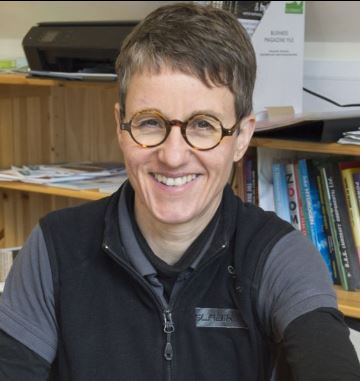 The Imagine Project was launched last month to media acclaim, but what exactly is the purpose of the project, where did the idea come from, and what does it mean for kids cycling and the future of Islabikes? I caught up with Isla over a cup of tea at the Cycle Show to find out more.
The Imagine Project was launched last month to media acclaim, but what exactly is the purpose of the project, where did the idea come from, and what does it mean for kids cycling and the future of Islabikes? I caught up with Isla over a cup of tea at the Cycle Show to find out more.
An interview with Isla Rowntree
The Imagine Project stems from a lightbulb moment Isla had 3 years ago, after attending a conference on sustainable manufacturing at Cambridge University. Representatives from academia, manufacturing and retail were discussing the challenges faced by western society if the current model of consumption were to continue unabated.
It’s a topic that Isla Rowntree is both knowledgeable and passionate about. She talks animatedly about how unsustainable the current model is. Cheap but finite raw materials are dug out of the ground and transformed into a product in the Far East by a workforce paid a fraction of what counterparts in Europe or North America earn. Cheap oil currently allows these goods to be transported halfway around the world to customers who use them for a while, then throw them away when the shiny new model comes out. After a brief existence, the product (be it a bike, mobile phone, television, shoe or washing machine) is languishing in landfills.
Deep down, we all know that the current model is unsustainable, but Isla challenges me to think about what could cause this model to stop working, and when? When exactly? And what will happen then? What are we all going to do about it?
I do OK answering the first question – what is going to cause things to go wrong? Scarcity of raw materials, an increase in the price of oil or rising wages in Asia could easily render this economic model obsolete. Isla informs me that it’s already starting to happen – the factory in Vietnam that makes Islabikes has seen double-digit increases in labour costs each year over the past ten years. And, she reminds me, as people earn more they have more to spend. Demand for products goes up, exacerbating the problem. However, the tipping point has not yet been reached.
Then come the difficult questions. When exactly will things change? This year, next year, five years, ten years? Twenty? I don’t know, and neither does Isla. We agree it’s unlikely to be this year or next, but what about twenty years? Possibly – who knows? Maybe, maybe not. It’s a long way away, so why should we be bothered?
But Isla is persistent. Say it’s twenty years – what happens then? What are we all going to do about it?
The lightbulb moment
The Cambridge conference could have been one of those great days away from the workplace that challenge and inspire, but quickly get forgotten when the grind of daily life takes over. Not this one though. Isla explains that on the way home she had a lightbulb moment. Realising that unless she did something, the future would see the entire Islabikes business model come tumbling down. She then started to realise the scale of the work required.
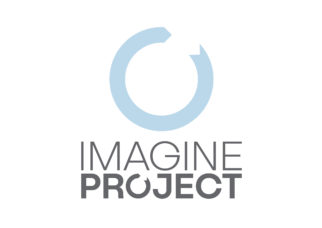 Isla tells me “I had to pull over and stop the car and start writing down the thoughts as they came to me”.
Isla tells me “I had to pull over and stop the car and start writing down the thoughts as they came to me”.
A new way of sourcing materials to make bikes, manufacturing them and getting them to the young riders would be needed. Ownership of the bikes would have to change, along with the responsibility for disposing of them at the end of their useful life. Within a short time she had the outline of the Imagine Project sketched out.
But what to do with it? When you’re running a hugely successful and growing business there is little time to indulge in saving society from its ills.
Preparing Islabikes for the Imagine Project
The funny thing is, Isla Rowntree didn’t set out to run a global business complete with all the hassles that come with it. She just wanted to change the way kids bikes were made, and she did that very successfully.
However, success has brought with it the responsibility of running a company worth several million pounds, and Isla readily admits that the corporate side of the business doesn’t play to her strengths. It’s clear that it’s not been an easy path realising this, but over the past couple of years, Isla has grown the leadership team around her to a point where others now share the responsibility for manufacturing, distribution, marketing, HR, IT, finance and all the other aspects that keep the company delivering a healthy profit.
So finally, Isla has found herself with more time. At this point, many people would have taken the money and enjoyed the fruits of a decade of hard work. Why worry about what is going to happen to the company in twenty years time? Why? Because Isla Rowntree is clearly one of those people who feels the weight of responsibility.
Understandably she feels responsible for Islabikes, the company she started from scratch. She feels responsible for the staff she knows so well, many of whom are just starting out on their careers. She feels responsible for the next generation, and I think she worries that they will look at her and ask why she didn’t do something when she knew she could.
She also feels responsible to herself. Isla Rowntree is a true competitor. The three-times British Cyclo-Cross champion and twice British Veteran Cyclo-Cross and MTB champion confides that she couldn’t just sit back and watch someone else doing, and succeeding, with her idea.
As we start discussing the Imagine Project in detail I realise that this isn’t just a business venture for Isla. It’s a deep-seated need to do the right thing. She passionately believes that society needs to rethink their methods of consumption and ownership. At the moment she has lots of questions, some good ideas, but not many solutions.
The Imagine Project is NOT a lot of things
Before we go into the detail of what the Imagine Project is, it’s probably best to clarify what it is not. Firstly, Isla is very clear with me that this is not a move to a rental scheme for the existing Islabikes range. The Original and Pro Series ranges will continue to be available on a purchase only basis, which may upset those hoping to avoid the initial outlay cost of an Islabike. However, this also means that the Imagine Project is not an attempt to cash in on the thriving second-hand market for Islabikes.
Isla openly concedes that her vision must take account of the long term profitability of the company, but this is a long term aim measured in decades not years. It’s apparent from our discussion that the start-up costs of the Imagine Project will far outway any short term gains.
The Islabikes Imagine Project
So what exactly is the Imagine Project? It started out as an idea. Since Easter, a team of 5 people have been working flat out in small premises in Ludlow to turn this idea into a prototype. And the target? A child’s bicycle that will last forever. Isla also has the aspiration that the Imagine Project will propel Islabikes to become the cycle industry experts in the sustainable manufacture of bicycles.
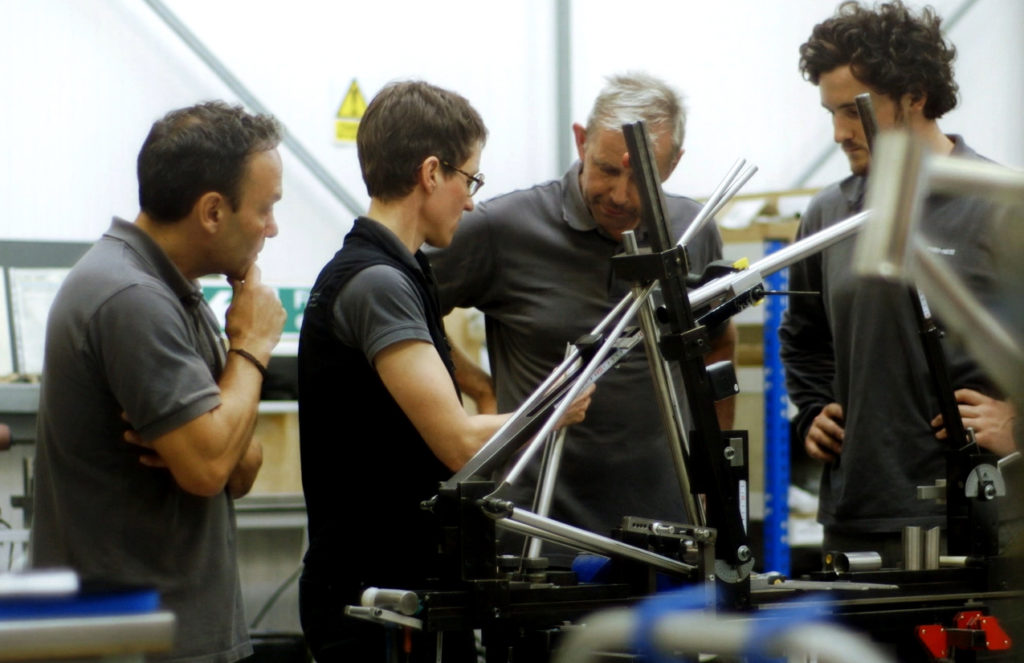
To do this, every aspect of the design, manufacture, distribution, ownership, maintenance and eventual disposal of a bicycle is being considered with a microscopic attention to detail.
Imagine the world of our grandchildren
If you imagine a world where the finite raw materials currently used in such abundance are no longer available, how do you build a bike? You have to work with other industries to use their waste materials. You source your materials from other products that have come to the end of their natural lives. You use renewable materials and you use less of everything.
If you imagine a world where it’s no longer feasible to build a bike and transport it half way around the world, you have to change where you source your parts, where you manufacture your bike and how you distribute it to the customer.
If you imagine the effort this takes, you realise that you can’t let a customer take such a valuable asset and use it for just a couple of years. You need it back. You need to own it, you need to be responsible for refurbishing it and sending it out to the next customer. You need to imagine a world where our current model of ownership of “things” ceases and consumers rent or borrow, they don’t own.
If you imagine this new model of consumption, you realise that all the consumable parts on your product need to be incredibly hard-wearing. The product needs to be robust, simple to maintain and easy to refurbish. The increasingly complex and throwaway items of today will need to be replaced with simple, no-frills alternatives that will last decades.
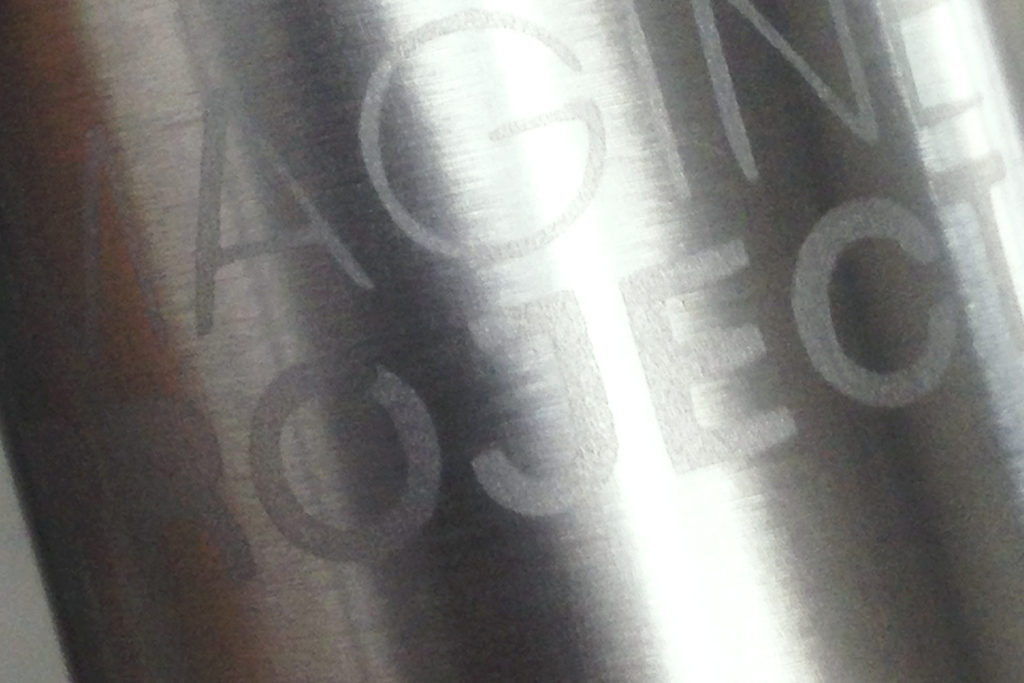
If you imagine a world where raw materials are so precious that landfill sites are being mined, then you can also imagine a world where the manufacturer is responsible for the disposal costs of their product, and for making any profit they can from those materials. So your waste suddenly becomes someone else’s raw material. At the end of its life, your product finally gets stripped down and each part becomes the raw materials for another industry. And so the circle continues – the bike lives forever.
Twenty years starts now
If you can imagine all this, you can see why twenty years will go quickly. Isla Rowntree needs to design new bikes and teach her team how to build them. She needs to find new methods of manufacture that are local and energy efficient.
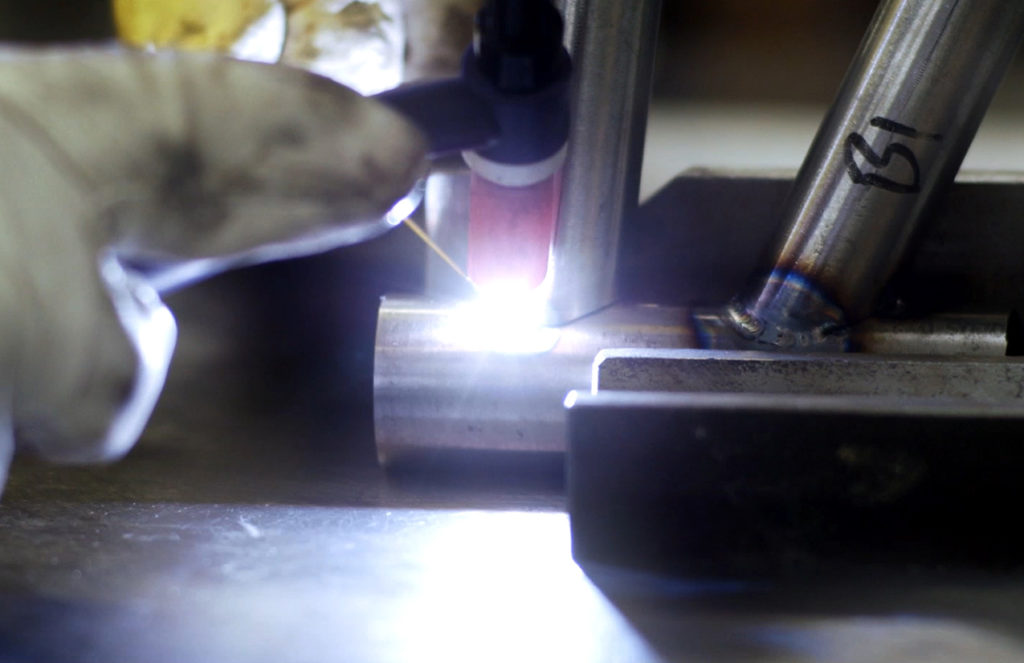
She needs to know if the end product is robust enough to last several generations (not just several children in one generation). She needs to convince people in various industries to work with her – some to source her materials from, others to take her waste into their production chain. She needs to convince her accountants that she can develop an economic model that means the Imagine Project is sustainable financially as well as environmentally. She needs to convince parents that this is the best way to provide their children with a bike. Quite possibly the only people who Isla won’t have to convince are the kids themselves. They’ll get it. It’s their future.
If you’re able to provide assistance to the Imagine Project, or would just like more details of the project visit http://www.islabikes.co.uk/imagineproject
Update 1 – November 2016: The first clues have come out of Ludlow as to what the Islabikes Imagine Project bike may look like. Find out in this blog about Rice Pedals and Curved frames
Update 2 – We learn that the new bike is going to be called the Islabikes Imagine 20, and see the first photos of it
Update 3 – January 2017: The first film footage of the Islabikes Imagine 20 is released
Update 4 – February 2017: We get to see the Islabikes Imagine 20 in real life at the London Bike Show
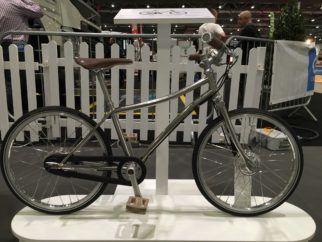
Follow Cycle Sprog on Facebook to keep up to date on the latest news and reviews about kids bikes. If you’ve enjoyed this interview with Isla Rowntree, please don’t forget to share it. Thanks!
Other articles you might be interested in:
- Where to buy cheap Islabikes; 2021
- Islabikes reveal new mountain bikes and branding plus updates to range
- New Release: Islabikes Rothan 14
- Isla Rowntree steps down as head of Islabikes
- What does the new Icons range mean for the future of Islabikes?
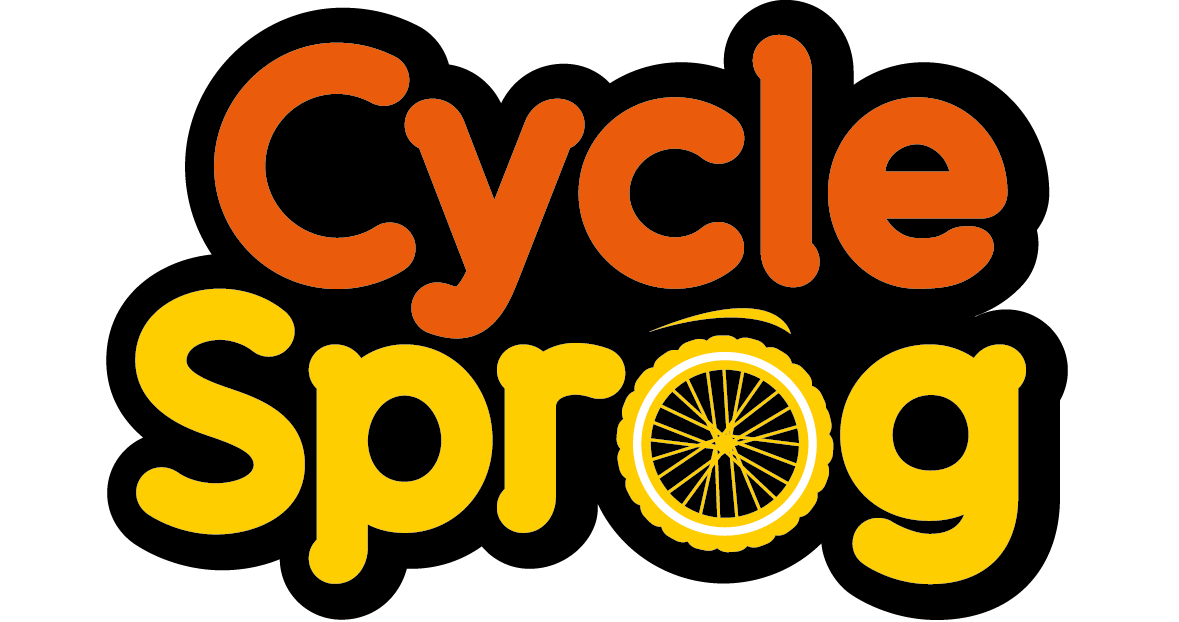

Comments